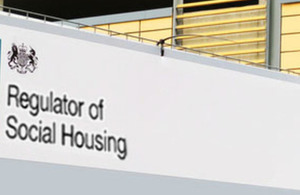Purpose
The Kuwait Programme supports implementation of UK priorities for Kuwait. It supports Kuwait’s ambitious ‘New Kuwait’ Vision 2035 agenda for transforming Kuwait into a trade centre, with a resilient and diverse economy led by the private sector under the umbrella of government institutions, which accentuates social values and identity and supports human resource development.
This call for bids runs in parallel with the FCDO Kuwait Country Business Plan development process, and projects will be expected to align with its strategic direction.
Gulf Strategy Fund projects are not intended to support isolated activities, such as a single visit or training course. Projects must make a clear contribution to strategic objectives and have a clear outcome, such as unlocking wider progress and moving the UK-Kuwait partnership forward in a substantive way. All projects must demonstrate value for money. FCDO defines ‘value-for-money’ as ‘making the best possible use of our all resources to maximise our impact’. In programme work, maximising impact includes having a robust, evidence-based theory of change demonstrating the causal pathway between the intervention and outcomes that support FCDO strategic priorities.
Scope
Bids may build on previous projects carried out in Kuwait or the wider region. The Embassy has also identified areas it wishes to prioritise:
- cyber security
- media freedom
- equality and inclusion
- scientific collaboration
- one health
- education
- anti-corruption and ethics
- youth political participation
- climate change and biodiversity
- economic diversification
However, we also invite bids in other thematic areas. These will be assessed against the same criteria as all other bids.
We also draw your attention to the FCDO MENAD Gender Charter pledge released in September 2021, which calls to ensure gender equality and inclusion is mainstreamed in any programme design, delivery and across all projects.
The Embassy recognises the challenges of working in a rapidly changing environment, reliant on the schedules and priorities of external actors. This particularly impacts the scheduling of activities and becomes difficult when planning a multi-year programme. We therefore embrace flexible and adaptive approaches as a key component of project effectiveness and value for money.
Funding period
FCDO has made a commitment to GSF for the three-year period (2022-2025), in line with the FCDO funding settlement.
This allows us to think strategically and plan multi-year projects that can have a much greater impact. We therefore encourage bids that demonstrate a long-term, strategic vision and envisage phased implementation and measurable impact.
Recognising the short timeframe and to accommodate projects in different stages of development, projects should not be scheduled to start before 1 August 2022.
However, we expect that there will be no facility to carry funds forward from one financial year to the next. We will commit to multi-year projects, but funding commitments will be made on a year-by-year basis, with budget for subsequent years considered indicative. Funding commitment for subsequent years will be reviewed on submission of new Activity-Based Budgets for each subsequent year of implementation. This process provides an opportunity for Partners to review and adjust their projects and the timing of activities and response to changing circumstances.
Funding level and project range
FCDO is yet to confirm allocations of programme funding for individual countries over this period, but we are working to an indicative budget of £1.5m per year for three years.
To improve efficiency our preference is for small projects to be in the range of £20,000 – £50,000 per year and larger projects will be from £50,000 to £250,000. All projects can be considered, but we advise consolidating project work into similar thematic area, we also recommend flexible project planning that could adjust activity based on available funding.
Parameters
In awarding and overseeing programme funds, the British Embassy in Kuwait is obliged to comply with all Cabinet Office and FCDO rules and guidance, including but not limited to those set out in the FCDO Programme Operating Framework (PrOF). Partners should especially take note of the following requirements:
-
all projects must have a single lead implementer, which holds full accountability for the full project budget and outcome. A lead Implementer may in some cases sub-contract project activity to a third party
-
the FCDO can only pay for costs that are incurred after signature by both parties and between the start and end date stated in a funding arrangement or contract
-
all project payments are issued in arrears to activities. The British Embassy will not consider requests for advance payments from implementers
-
all projects must align with the Paris Agreement and assess climate and environmental impact and risks, taking steps to ensure that no environmental harm is done
-
all projects must consider and demonstrate how their interventions will impact gender equality, disability inclusion and those with protected characteristics
-
any projects involving paid-for communications activity must receive clearance from the Professional Communications Assurance (PCA) team prior to signing agreements
-
any project working on Human Rights, laws, policies, practises or capabilities of justice or security institution will be reviewed under the UK Overseas Security and Justice Assessment (OSJA) guidance prior to signing agreements
-
all approved projects will be expected to comply with FCDO mandated reporting requirements using templates provided, including:
- monthly project updates and ABB forecasts
- quarterly monitoring reports
- project closure report
Process
All submitted bids will be reviewed by the Embassy and assessed against set criteria.
The Embassy will expedite the approval process to the extent possible, but cannot approve projects until formal funding allocation is confirmed.
Approved projects will then begin the mobilisation process before beginning implementation, including:
- securing any required approvals (e.g. PCA, OSJAs, Due Diligence etc.)
- any competitive process (if required to select commercial implementers)
- preparation and signing of agreements
Appraisal criteria
| Criteria |
Explanation |
Weighting |
| Strategic Fit: |
Project alignment with FCDO objectives and wider Embassy programme design. |
25% |
| Value For Money: |
Maximising impact of activity through robust Theory of Change design identifying the relation between planned activity and desired outcomes. |
25% |
| Feasibility: |
Realistic objectives within the planned timeframe, appetite within Kuwaiti/UK stakeholders. |
15% |
| Risk: |
Risk assessments for projects should be comprehensive and realistic including viable mitigation measures to reduce likelihood and impact of any reputational or financial risks to the FCDO and the UK. |
15% |
| Cross-Cutting: |
All projects should consider gender equality, inclusion and climate impact of all activities and support the Embassy’s objectives to raise awareness and encourage positive change. |
10% |
| Capability: |
Implementer proven record of delivery in the context (or similar) of the proposed project. |
10% |
Bids submission
An approved bid submission will consist of:
Please return completed pairs of documents to Kuwait.Programme@fcdo.gov.uk along with a confirmation of the type of contract that would be required (Grant Agreement or Memorandum of Understanding).
The British Embassy Kuwait Call for Bids will be open from 29 May to 23 June 2022.
The PPF template is identical to programming template except for sections that have been adapted for multi-year projects.
The ABB template has been adapted to accommodate projects for up to three years duration. For the first year, implementers need to calculate budget on a monthly basis. Subsequent years are budgeted on a quarterly basis initially, and will be refined and re-approved in advance of each financial year.
The Grant Agreements and Memorandums of Understanding are standard FCDO contracts and the Embassy will not enter into negotiation around contracts beyond the very limited areas where it may use pre-approved alterations.
Copies of contract templates are available on request to Kuwait.Programme@fcdo.gov.uk.
The Embassy is not able to write bids on an implementer’s behalf, but the Programme team is available to provide support in developing a proposal or policy alignment. The team will also be running group workshops during the Call for Bids period on FCDO programming and processes, to register your interest in these sessions and any other questions relating to projects please contact the embassy programme team through Kuwait.Programme@fcdo.gov.uk .
British Embassy Kuwait Programme Team at Kuwait.Programme@fcdo.gov.uk

